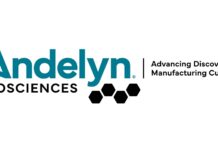Announcement in the U.S. that Food and Drug Administration (FDA) has approved Opdivo (nivolumab) in combination with Yervoy (ipilimumab) for the treatment of patients with BRAF V600 wild-type and BRAF V600 mutation-positive unresectable or metastatic melanoma.
1 This indication is approved under accelerated approval based on progression-free survival (PFS).1 Continued approval for this indication may be contingent upon verification and description of clinical benefit in confirmatory trials.1 This approval expands the original indication for the Opdivo + Yervoy Regimen for the treatment of patients with BRAF V600 wild-type unresectable or metastatic melanoma to include patients, regardless of BRAF mutational status, based on data from the Phase 3 CheckMate -067 trial, in which PFS and overall survival (OS) were co-primary endpoints.
Opdivo is associated with immune-mediated: pneumonitis, colitis, hepatitis, endocrinopathies, nephritis and renal dysfunction, rash, encephalitis, other adverse reactions; infusion reactions; and embryofetal toxicity.1 Please see the Important Safety Information section below, including Boxed WARNING for Yervoy regarding immune-mediated adverse reactions.
“For nearly a decade, our researchers have worked tirelessly to find treatment options that could improve outcomes for patients with late-stage melanoma, a particularly aggressive cancer, and we are incredibly proud of today’s approval to expand the use of the Opdivo + Yervoy Regimen to include patients with BRAF mutation-positive unresectable or metastatic melanoma. CheckMate -067 is the first Phase 3 study to observe the efficacy and safety of both Opdivo as a single-agent as well as in combination with Yervoy versus Yervoy alone,” said Chris Boerner, Head of U.S. Commercial, Bristol-Myers Squibb. “To make this treatment option available to more patients is truly a milestone in the fight against this deadly disease.”
The FDA also expanded the use of Opdivo as a single-agent to include previously untreated BRAF mutation-positive advanced melanoma patients.1 The use of Opdivo as a single-agent in patients with BRAF V600 mutation-positive unresectable or metastatic melanoma is approved under accelerated approval based on progression-free survival.1 Continued approval for this indication may be contingent upon verification and description of clinical benefit in confirmatory trials.1 Opdivo was approved by the FDA in November 2015, for use in previously untreated patients with BRAF V600 wild-type unresectable or metastatic melanoma.
“Patients with metastatic melanoma historically have a very challenging disease. Recent advances in our understanding of the immune response to cancer has yielded therapies which provide meaningful responses and hope. The combination of two Immuno-Oncology treatments, nivolumab and ipilimumab, has been shown to provide these patients with a much needed improvement in progression-free survival and response rates,” said Jedd D. Wolchok, MD, PhD, Chief, Melanoma and Immunotherapeutics Service, Department of Medicine and Ludwig Center at Memorial Sloan Kettering Cancer Center. “This expanded approval for the nivolumab and ipilimumab regimen provides more advanced melanoma patients with an Immuno-Oncology combination treatment, and the potential for improved outcomes.”
Expanded Approval Based on Efficacy Demonstrated in a Phase 3 Trial
CheckMate -067 is a Phase 3, double-blind, randomized study that evaluated the Opdivo + Yervoy Regimen or Opdivo monotherapy vs. Yervoy monotherapy in patients with previously untreated advanced melanoma.1, 2 The trial evaluated previously untreated patients, including both BRAF V600 mutant and wild-type advanced melanoma, and enrolled 945 patients who were randomized to receive the Opdivo + Yervoy Regimen (Opdivo 1 mg/kg plus Yervoy 3 mg/kg every 3 weeks for 4 doses followed by Opdivo 3 mg/kg every 2 weeks thereafter; n=314), Opdivo monotherapy (Opdivo 3 mg/kg every 2 weeks; n=316) or Yervoy monotherapy (Yervoy 3 mg/kg every 3 weeks for 4 doses followed by placebo every 2 weeks; n=315).1 Patients were treated until progression or unacceptable toxic effects.1 The median duration of exposure was 2.8 months (range: 1 day to 18.8 months) for patients in the Opdivo + Yervoy Regimen arm with a median of four doses (range: 1 to 39 for Opdivo; 1 to 4 for Yervoy), and 6.6 months (range: 1 day to 17.3 months) duration for the Opdivo monotherapy arm with a median of 15 doses (range: 1 to 38).1,2 The co-primary endpoints were PFS and OS; the study is ongoing and patients continue to be followed for OS.
Results from the trial demonstrated a statistically significant improvement in PFS in patients with advanced melanoma treated with the Opdivo + Yervoy Regimen (p<0.0001) and with Opdivo as a single-agent (p<0.0001) vs. Yervoy monotherapy.1 Median PFS was 11.5 months (95% CI: 8.9-16.7) for the Opdivo + Yervoy Regimen and 6.9 months (95% CI: 4.3-9.5) for Opdivo monotherapy, vs. 2.9 months (95% CI: 2.8-3.4) for Yervoy monotherapy.1 The Opdivo + Yervoy Regimen demonstrated a 58% reduction in the risk of disease progression vs. Yervoy (HR: 0.42; 95% CI: 0.34-0.51; p<0.0001), while Opdivo monotherapy demonstrated a 43% risk reduction vs. Yervoy monotherapy (HR: 0.57; 95% CI: 0.47-0.69; p<0.0001).
In addition, the Opdivo + Yervoy Regimen and Opdivo monotherapy demonstrated higher confirmed objective response rates (ORR; 50% and 40%; p<0.0001, respectively) vs. Yervoy monotherapy (14%).1 The percentage of patients with a complete response was 8.9%, 8.5% and 1.9%, favoring the Regimen and Opdivo monotherapy over Yervoy monotherapy.1 Partial responses were seen in 41% of patients treated with the Opdivo + Yervoy Regimen, 31% of patients treated with Opdivo monotherapy, and 12% of patients treated with Yervoy monotherapy. The Opdivo + Yervoy Regimen delivered durable responses, with three of four (76%) patients experiencing an ongoing response of at least six months (range: 1.2+ to 15.8+).1 Of patients in the Opdivo monotherapy and Yervoy monotherapy arms, 74% and 63% experienced an ongoing response of at least six months, respectively (ranges: 1.3+ to 14.6+; 1.0+ to 13.8+).
“The melanoma community is excited to see the ongoing developments in research from the pharmaceutical industry, including Bristol-Myers Squibb, who made the first approved combination of two Immuno-Oncology treatments available to more patients fighting this disease,” said Tim Turnham, Executive Director, Melanoma Research Foundation. “Today’s expanded approvals continue to bring new treatment options to patients, and demonstrate the ongoing impact of Immuno-Oncology research.”
In CheckMate -067, serious adverse reactions (73% and 37%), adverse reactions leading to discontinuation (43% and 14%), or to dosing delays (55% and 28%), and Grade 3 or 4 adverse reactions (72% and 44%) all occurred more frequently in the Opdivo + Yervoy arm relative to the Opdivo arm.1 No overall differences in safety or efficacy were reported between elderly and younger patients.1 The most common adverse reactions leading to discontinuation of the Opdivo + Yervoy Regimen relative to Opdivo as a single-agent were diarrhea (8% and 1.9%), colitis (8% and 0.6%), increased ALT (4.8% and 1.3%), increased AST (4.5% and. 0.6%), and pneumonitis (1.9% and 0.3%).1 The most frequent (=10%) serious adverse reactions in the Opdivo + Yervoy arm and the Opdivo arm, respectively, were diarrhea (13% and 2.6%), colitis (10% and 1.6%) and pyrexia (10% and 0.6%).1 The most common adverse reactions (=20%) reported in patients receiving the Opdivo + Yervoy Regimen relative to Opdivo as a single-agent were fatigue (59% and 53%), rash (53% and 40%), diarrhea (52% and 31%), and nausea (40% and 28%).1 Pyrexia (37%), vomiting (28%) and dyspnea (20%) were also reported in =20% of patients receiving the Opdivo + Yervoy Regimen.



















